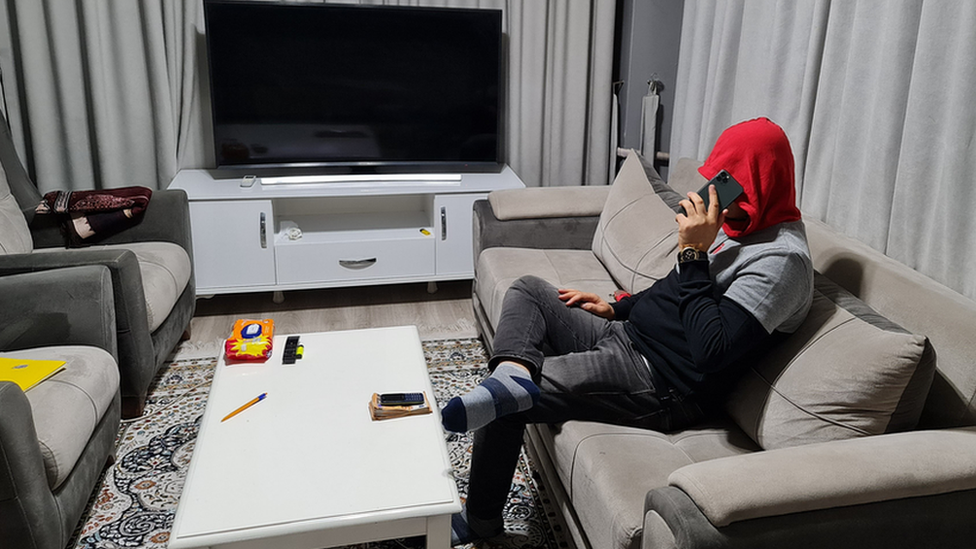
After the call, Shafiullah, who was 16, boarded the boat. He was one of about 100 passengers that night, last June, and one of thousands of men who have have fled Afghanistan every month this year in search of a more secure life in Europe.
Shafiullah was already inside Turkey, but the people smugglers he had paid to ferry him to Istanbul were heading across Lake Van to avoid police roadblocks. The lake's waters are dangerous, and the smugglers were setting out at night.
Somewhere across the water, the vessel they had chosen to carry their human cargo - including at least 32 Afghans, seven Pakistanis and one Iranian - sank. Sixty-one bodies were recovered, but the rest, including Shafiullah, are missing. Some bodies could be deep below the surface, Turkish authorities told the BBC, making recovery unlikely.
At least four of those thought to have perished, including Shafiullah, were sent by a smuggler in Kabul. The BBC approached the smuggler and he agreed to talk on the condition that his identity was disguised.
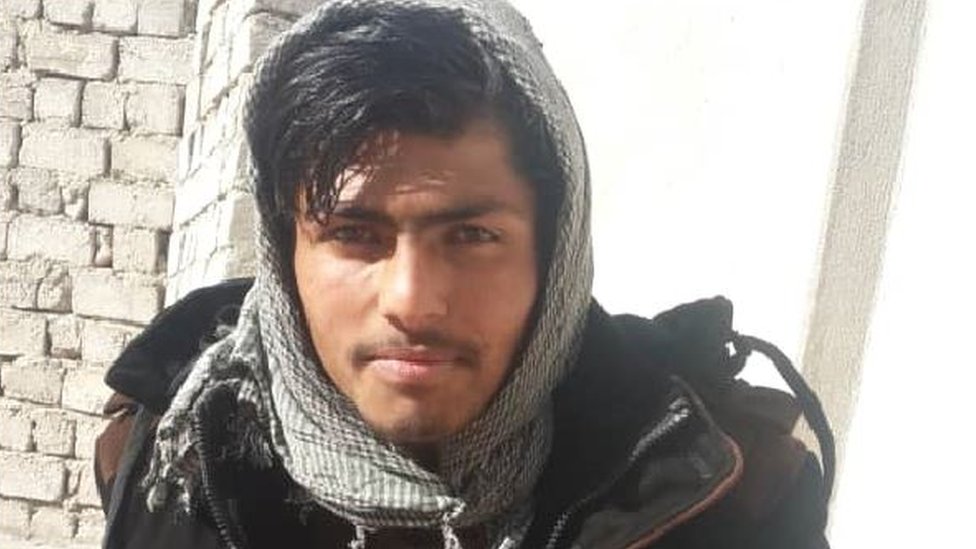
'Everything is arranged by phone'
Elham Noor (not his real name) has well-established links with other criminals and claims a high success rate in sending people to Italy, France, and the UK.
"Smuggling is not an individual business, it's a huge network," he said. "We have connections with one another." Nppr doesn't travel with the migrants though. "Everything is arranged over the phone," he said.
Noor has no shortage of clients. Many Afghans are desperate to leave their country. Afghanistan is among the poorest in the world, it has been ravaged by decades of war. According to the United Nations, 2.7 million Afghans are currently living abroad as refugees - putting Afghanistan behind only Syria and Venezuela in the list of countries which produce the most migrants and refugees.
So Noor has no need to advertise. His clients call him. Young Afghans looking to make the journey will typically seek out a trafficker who has already sent somebody else from their region.
But only a small percentage of those who try to reach Europe succeed at their first attempt, and some never return.
Shafiullah's uncle Sher Afzal said the family knew the journey would be dangerous. "But we didn't anticipate this," said.
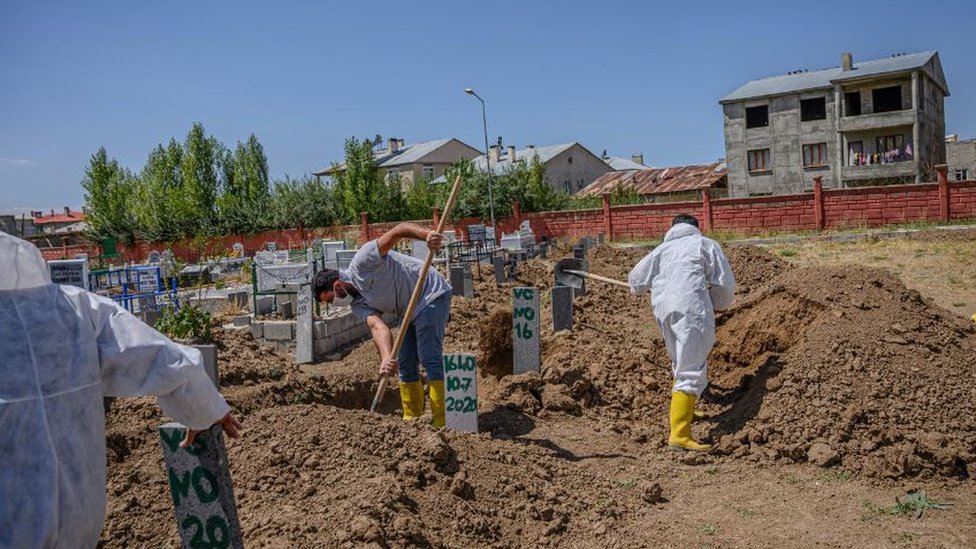
Afzal is in mourning, but it's a strange, hollow kind of grieving that lacks certainty. Shafiullah is still listed as missing. The family, who live in the eastern Afghan city of Jalalabad, would like to hold a memorial service for Shafiullah, but they have no remains. There has already been a ceremony for the two migrants whose bodies were recovered.
"Now we want to see his dead body. We don't expect him to be alive," Afzal said.
Shafiullah saw no prospect of a future in Jalalabad. He contacted Noor to get passage to Italy, paying the trafficker $1,000 (£741) as a first instalment. He was bundled together with other migrants and moved from one place to another in cars, trucks, and sometimes on foot.
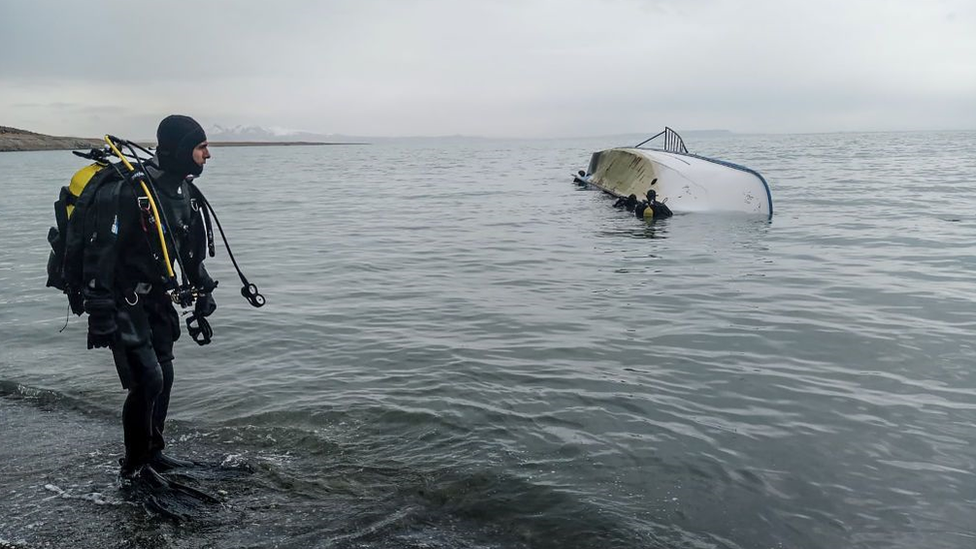
Shafiullah crossed Iran and entered Turkey, but his journey came to an end on Lake Van, moments after he called his family.
Noor told the BBC he paid the money back to Shafiullah's family and to others whose journey's were cut short. Shafiullah's family confirmed that they had received the money.
$8,500 to get to Italy
Noor said the tragedy had added to his misgivings about people smuggling. He recognises the human cost when things go wrong, he said. But it is a lucrative trade, and a hard one to leave after so many years.
"We charge $1,000 for Afghanistan to Turkey," Noor said. "From Turkey to Serbia, it is $4,000. From there to Italy, we charge another $3,500. It is $8,500 altogether."
These are huge sums of money in a country where the average per capita annual income is just over $500. Noor pockets between $3,000 and $3,500 for every migrant who successfully reaches Italy.
And all Noor has to do to is pick up the phone, arrange some money transfers and pay the occasional bribe to the Afghan authorities. He never meets anyone in person who is not known to him or a close relative or friend. He relies on his reputation to bring in clients and is wary of speaking to strangers.
It's a comfortable life, particularly by Afghan standards, and the trappings of wealth are obvious - the cars, the clothes, the houses.
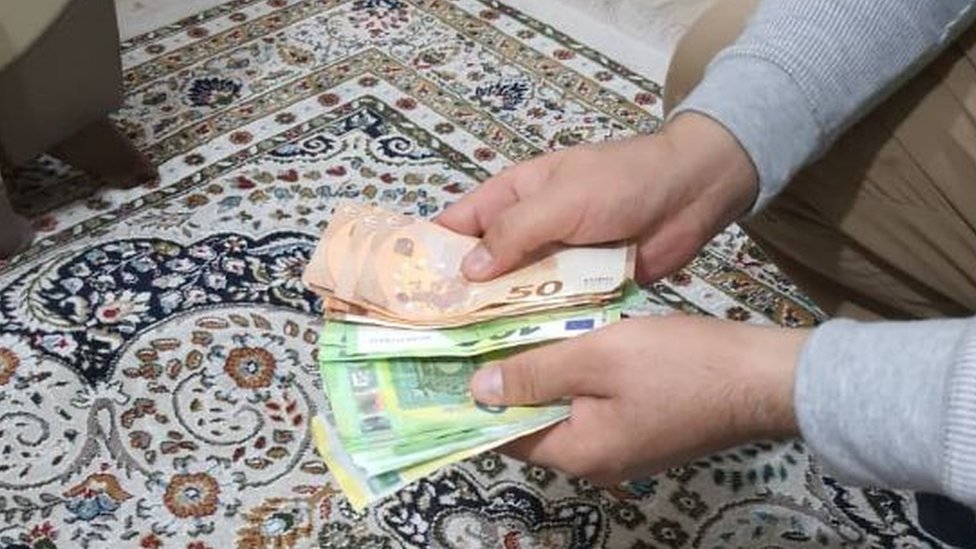
Noor knows that migrants face a risky journey without travel documents. They are kept hidden during the day and moved at night, using the network's safe houses along the way, in cities like Tehran, Van and Istanbul, he said.
The migrants are advised not to carry any valuables like expensive jewellery or watches which could attract thieves. Noor usually tells the migrants not to carry more than $100 in cash.
The journey to Turkey, a major hub for Afghans heading to Europe, can take from a week to a couple of months, depending on what happens on the way.
One migrant who made it to Istanbul, passing through on his way to the West, was Hazrat Shah, a former soldier in the Afghan army.
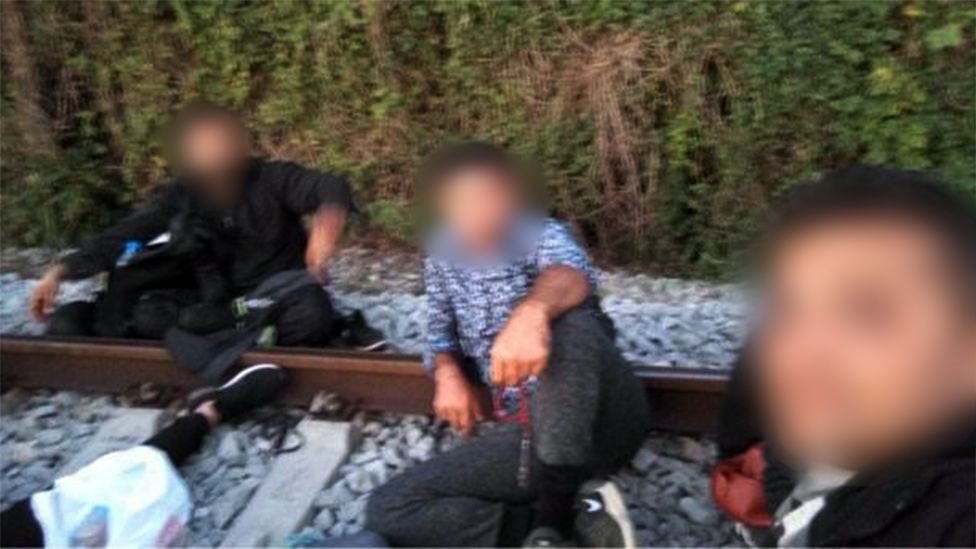
After his village came under the control of the Taliban, the 25-year-old feared reprisal attacks on his family, so he deserted from his unit and decided to leave the country. He set off from Nangarhar in eastern Afghanistan earlier this year, attempting to make it to Italy.
"After reaching the border [between Turkey and Iran], it took almost a month to arrive in Istanbul. I stayed there for a few months and worked in hotels to earn money to pay for the smugglers," Shah told the BBC.
The eastern Mediterranean route, which involves crossing the sea between Turkey and Greece, is particularly favoured by migrants. The European border agency estimates that in the first 10 months of this year, more than 17,000 people crossed over to Europe through this route, and almost a quarter of these are thought to be Afghan.
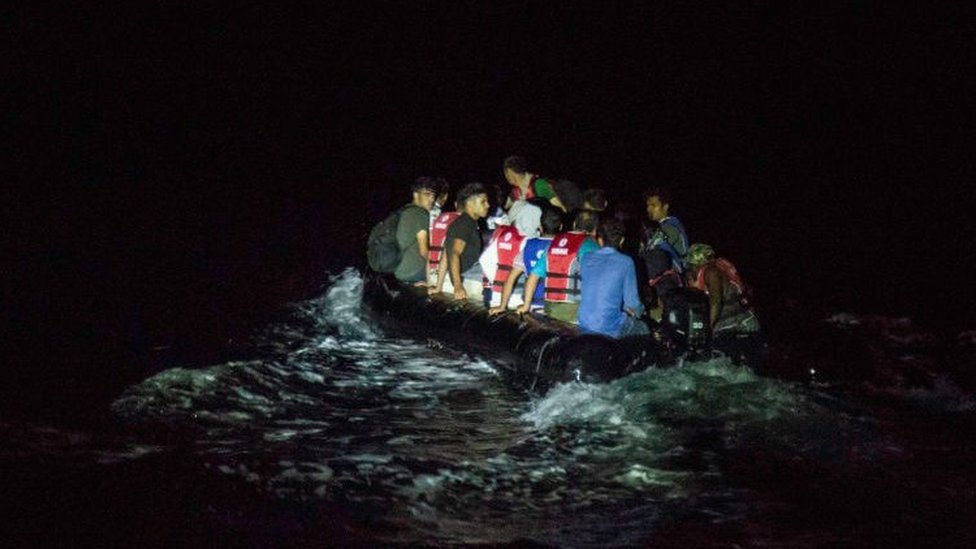
It was difficult to get from Greece to Bosnia - Shah was deported several times before he made it - but his attempts to move further met with repeated failure.
"It was horrible. In the last attempt I was injured as well. The police beat me a lot," he said. "They took our shoes and jumpers. We were forced to return in the dark. It is so hard to get through."
'The smugglers can't help'
Shah is not sure if he will ever get to Italy, but he is in no mood to call the people smugglers back in Afghanistan for help. They disappear at the first sign of trouble, he said, and many who undertake the journey regret trusting them.
"There is a possibility that you can die or be injured or abducted at every stage of the journey - and nobody can help you," he said. "It is not possible for them [the people smugglers] to help as they are afraid of the police. It is a dirty game."
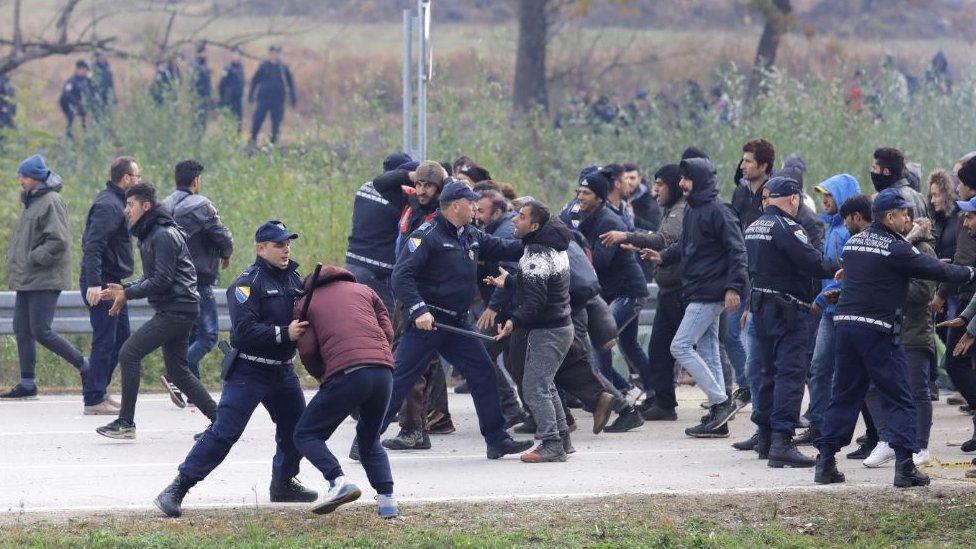
Shah said he had lived in horrific conditions for many months and has seen many die on the way.
"You will receive very little food and water to keep you alive. I saw people dying of thirst without water. Other migrants can't help them because if you give your water to them, you face the same situation," he said.
According to the International Organisation for Migration (IOM), more than 1,000 people have died trying to cross the Mediterranean this year. This is mainly because they are forced to travel on overcrowded boats, often during rough weather. Many others, like Shafiullah, die before reaching the Mediterranean and are not even included in this statistic.
But there is no shortage of Afghans wanting to migrate. After an explosion near the German embassy in Kabul in 2017, which killed at least 150 people, most European countries closed their visa application centres in Afghanistan, which has made travelling legally to Europe even harder and only increased the flow of clients seeking the services of smugglers like Noor.
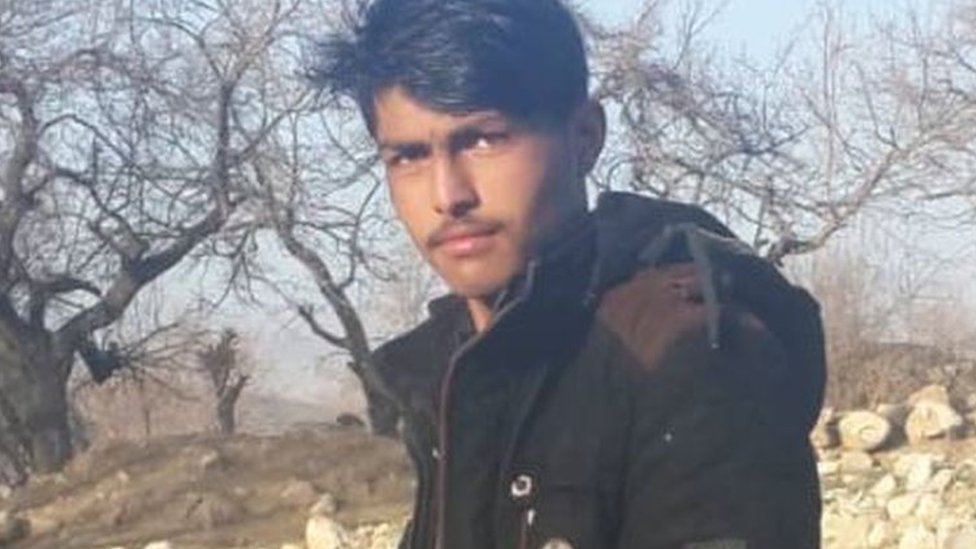
From migrant to trafficker
Noor himself was once in a similar situation. Like so many others, he too once dreamed of living a comfortable life in the UK. He undertook the same journey when he was just 14. His dad paid $5,000 to smugglers.
"I still remember the difficulties of my journey, particularly in Bulgaria where we were kept hidden in trains - I was even forced to jump from a moving train," Noor said.
In Calais, Noor was offered a commission of 100 euros (£90) for every migrant he introduced to a smuggler. This is how he got his start in the business of people smuggling.
Noor reached the UK illegally and continued to work with smugglers. But he returned to Afghanistan at the age of 21 when he realised the police were looking for him, he said.
Some of the migrants who managed to reach Europe through Noor's network passed on his details to others, and his network and reputation grew.
"Despite the uncertainty, people still trust me to take them out of the country," he said.
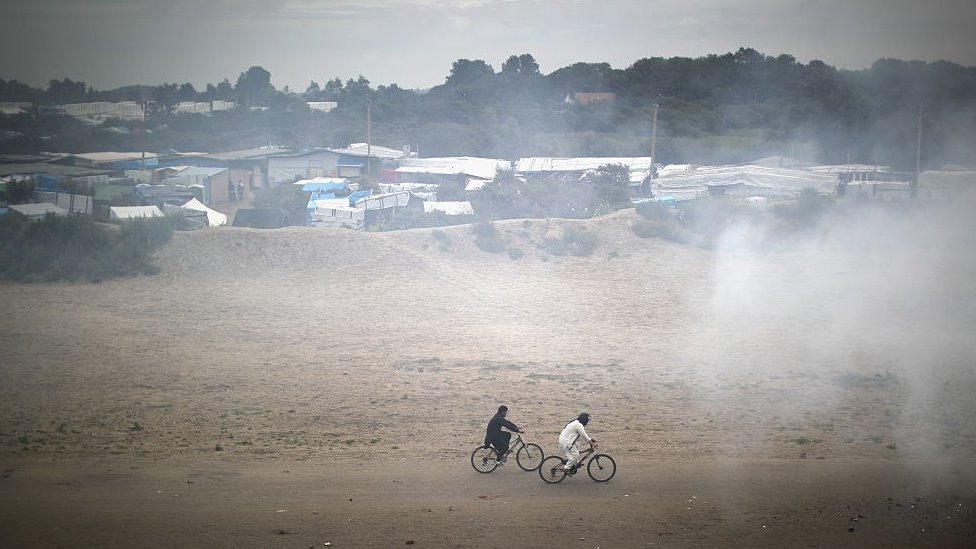
Noor said about 100 people who paid him to deliver them to a better life were currently on their way to Europe. But he insisted they would be the last. He was getting out of the business, he claimed. He said the disaster with Shafiullah's boat had hurt him, but the migrants knew the risks.
"I apologised many times to the families. I told them clearly in the beginning, anything can happen on the way," he said. "They have accepted this. God will decide whether to forgive me or not."
Another trafficker who knew Noor said he would find it difficult to stop.
"People will continue to call him for years to come, and the chance to make money won't simply go away the moment he calls it quits," the trafficker said.
Whether Noor gets out or not, the people smuggling will continue. Many thousands Afghans will still be desperate for a safer and better life.
In Autumn, not long after Shafiullah's boat sank, two of his relatives made it as far as Turkey. They have just been deported back home.
When the weather gets warmer next summer, they may try again.

You may also be interested in
"world" - Google News
December 20, 2020 at 07:03AM
https://ift.tt/3atkld6
'God will forgive me or not': Inside the world of a people smuggler - BBC News
"world" - Google News
https://ift.tt/3d80zBJ
https://ift.tt/2WkdbyX
Bagikan Berita Ini














0 Response to "'God will forgive me or not': Inside the world of a people smuggler - BBC News"
Post a Comment